Filter by
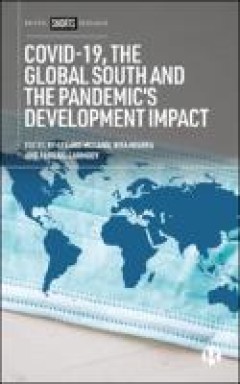
COVID-19, The Global South And The Pandemic’s Development Impact
EPDF and EPUB available Open Access under CC-BY-NC-ND licence. This book examines the unique implications of the pandemic in the Global South. With international contributors from a variety of disciplines, it investigates the pandemic’s effects on development, medicine, gender (in)equality and human rights among other issues. The book’s assessment offers a discourse on the ways in which the…
- Edition
- -
- ISBN/ISSN
- 9781529225679
- Collation
- -
- Series Title
- -
- Call Number
- -
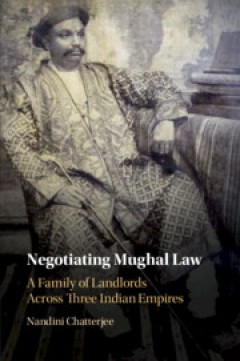
Negotiating Mughal law : a family of landlords across three Indian empires
Based on a completely reconstructed archive of Persian, Hindi and Marathi documents, Nandini Chatterjee provides a unique micro-history of a family of landlords in Malwa, central India, who flourished in the region from at least the sixteenth until the twentieth century. By exploring their daily interactions with imperial elites as well as villagers and marauders, Chatterjee offers a new histor…
- Edition
- -
- ISBN/ISSN
- 9781108623391
- Collation
- xii, 233p. ; ill.
- Series Title
- -
- Call Number
- 349.5430903
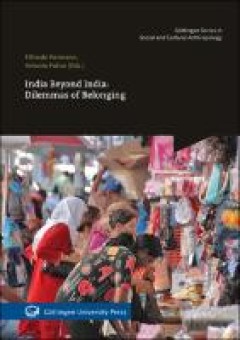
India beyond India : dilemmas of belonging
People’s transnational mobilities, their activities to build homes in their countries of residence and their connectivities have resulted in multiplicities of belonging to encountered, imagined and represented communities operating within various political contexts. Migrants and their descendants labor to form and transform relations with their country of origin and of residence. People who s…
- Edition
- -
- ISBN/ISSN
- 9783863953614
- Collation
- 214p.
- Series Title
- -
- Call Number
- 305.8914 IND h

Language and the making of modern India : nationalism and the vernacular in c…
Through an examination of the creation of the first linguistically organized province in India, Odisha, Pritipuspa Mishra explores the ways regional languages came to serve as the most acceptable registers of difference in post-colonial India. She argues that rather than disrupting the rise and spread of all-India nationalism, regional linguistic nationalism enabled and deepened the reach of…
- Edition
- -
- ISBN/ISSN
- 9781108591263
- Collation
- 247p. ; ill.
- Series Title
- -
- Call Number
- 409.54133 PRI l
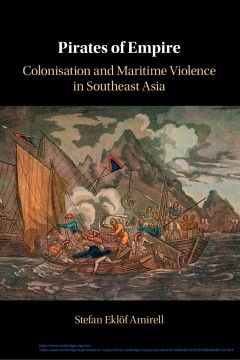
Pirates of empire : colonisation and maritime violence in Southeast Asia
The suppression of piracy and other forms of maritime violence was a keystone in the colonisation of Southeast Asia. Focusing on what was seen in the nineteenth century as the three most pirate-infested areas in the region - the Sulu Sea, the Strait of Malacca and Indochina - this comparative study in colonial history explores how piracy was defined, contested and used to resist or justify colo…
- Edition
- -
- ISBN/ISSN
- 9781108594516
- Collation
- ix, 266p. : ill.
- Series Title
- -
- Call Number
- 364.164 AMI p
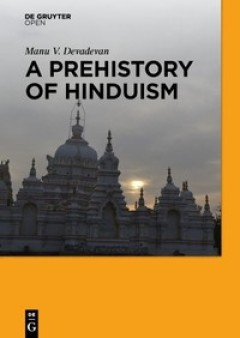
A prehistory of Hinduism
This book is a pioneering attempt to understand the prehistory of Hinduism in South Asia. Exploring religious processes in the Deccan region between the eleventh and the nineteenth century with class relations as its point of focus, it throws new light on the making of religious communities, monastic institutions, legends, lineages, and the ethics that governed them. In the light of this prehis…
- Edition
- -
- ISBN/ISSN
- 9783110517378
- Collation
- XIII, 222 p.
- Series Title
- -
- Call Number
- 290 DEV a
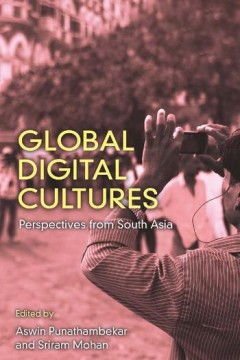
Global digital cultures : perspectives from South Asia
Digital media histories are part of a global network, and South Asia is a key nexus in shaping the trajectory of digital media in the twenty-first century. Digital platforms like Facebook, WhatsApp, and others are deeply embedded in the daily lives of millions of people around the world, shaping how people engage with others as kin, as citizens, and as consumers. Moving away from Anglo-Americ…
- Edition
- -
- ISBN/ISSN
- 9780472131402
- Collation
- viii, 317p. : ill.
- Series Title
- -
- Call Number
- 302.2310954
 Computer Science, Information & General Works
Computer Science, Information & General Works  Philosophy & Psychology
Philosophy & Psychology  Religion
Religion  Social Sciences
Social Sciences  Language
Language  Pure Science
Pure Science  Applied Sciences
Applied Sciences  Art & Recreation
Art & Recreation  Literature
Literature  History & Geography
History & Geography